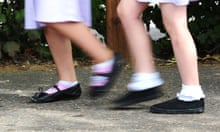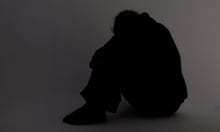Government guidance on sex and relationship teaching in English schools, last updated 16 years ago, has no reference to pornography despite “significant evidence” that its ready availability online can facilitate harassment and sexual violence, MPs say.
An inquiry report published on Tuesday by the women and equalities committee criticises the Department for Education and Ofsted, the schools watchdog, for their lack of a coherent plan to monitor the “shocking scale” of sexual harassment and violence in classrooms across England or to tackle the consequences.
Evidence of the need for government action was now “quite overwhelming”, said Maria Miller, the committee’s chair. Her inquiry found an “alarming inconsistency” in how schools deal with sexual harassment and violence, with many under-reporting incidents, a disregard for existing national and international equality obligations and a lack of guidance and support for teachers.
The committee called for a new duty on schools to record, prevent and respond to incidents of sexual violence, for age-appropriate sex and relationship education (SRE) to be compulsory in primary and secondary schools, and for clear national government guidance on the issue. Ofsted and the Independent Schools Inspectorate must assess how well schools perform this duty, the MPs said.
Pupils reported hearing girls being called a slut or a slag on a regular basis, according to research highlighted by the committee. It heard that “slapping of bums and flicking [lifting up] of skirts” was common, while one teacher told how they had had “many young girls sobbing and humiliated in my office because partially naked images have gone viral”.
Teachers’ unions and women’s groups welcomed the report.
At the report’s launch at Girlguiding HQ in London, Miller said her report painted a “concerning picture”. She said: “We have heard girls talk about sexual bullying and abuse as an expected part of everyday life; with teachers accepting sexual harassment as ‘just banter’; and parents struggling to know how they can best support their children.”
On Monday the Guardian reported that teachers had concerns about a “slow creep” of sexualised behaviour in children as young as five.
Comparing sexual harassment in schools with how (now illegal) harassment in the workplace was treated two decades ago, Miller asked: “It is right for young girls as young as 11 have to dealt with sexual harassment and even sexual violence at school on an everyday basis?”
Miller stressed the report’s findings on the negative impact that widespread access to pornography was having on children and their perceptions of sex, relationships and consent. “The most important recommendation is for SRE to be made statutory to recognise the changed way we live and the way young people accessing pornography form their attitudes towards sex and relationships,” she said.
The data cited in the Commons on Tuesday – first published in September last year – revealed that 5,500 sexual offences were recorded in UK schools over a three-year period, including 600 rapes.
Other recommendations put forward by the committee were for the government to update SRE guidance to include teaching on pornography, for police to record incidents of sexual harassment and violence in schools and for government-funded research to establish the most effective ways to support boys and young men to be part of the solution.
Almost a quarter of young people said they were 12 years old or younger when they first saw pornography online, and 7.3% were under 10, according to a BBC survey in 2014.
Research by Girlguiding in 2015 shows that 59% of girls have experienced sexual harassment at school and 75% say anxiety about it negatively affects their lives, including thinking twice about raising their hands in class.
Girlguiding, which has been campaigning about sexual harassment in schools since 2014, launched an online petition on change.org on Tuesday calling on Justine Greening, the education secretary, and her counterparts in Scotland and Wales to adopt the committee’s findings. It is the second petition to be launched on change.org calling for Greening to take action to tackle the issue.
Teachers’ unions welcomed the report and called for urgent government leadership, support and guidance on the issue.
Kevin Courtney, general secretary of the National Union of Teachers, said: “Government education policies hinder schools’ ability to tackle sexual harassment and sexual bullying effectively by leaving no time for pastoral care or personal, social, health and economic education (PSHE) within the curriculum or school day.”
“Government needs to provide real leadership on this issue and widen their vision for the purpose of education.”
Chris Keates, general secretary of the NASUWT, which gave evidence to the inquiry, said: “The NASUWT submitted evidence to the inquiry based on our own research, which showed that sexual harassment, including threats of sexual violence and degrading comments, is an all too frequent reality for pupils and teachers in our schools.
“Mobile phones and social media have become tools by which this abuse is often perpetrated, yet a survey of over 1,300 teachers by the NASUWT earlier this year found that only just over a quarter of schools had an internet or social media policy which makes specific reference to protecting staff and pupils from this kind of abuse.”
Jane Lees, chair of the Sex Education Forum, said: “That sexual violence and harassment in schools is so widespread is disturbing but it is not inevitable.”
“There is no excuse for the government to ignore the overwhelming support amongst young people, parents, teachers, MPs and peers from across the political spectrum.”










